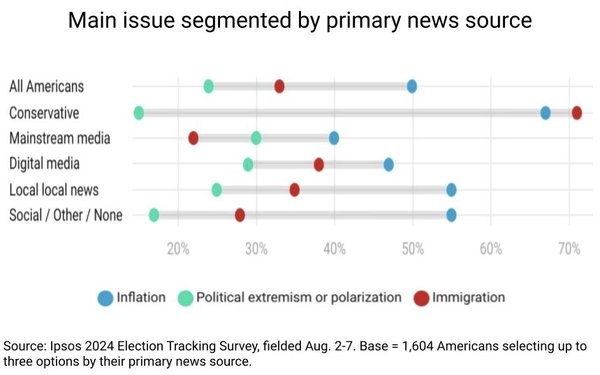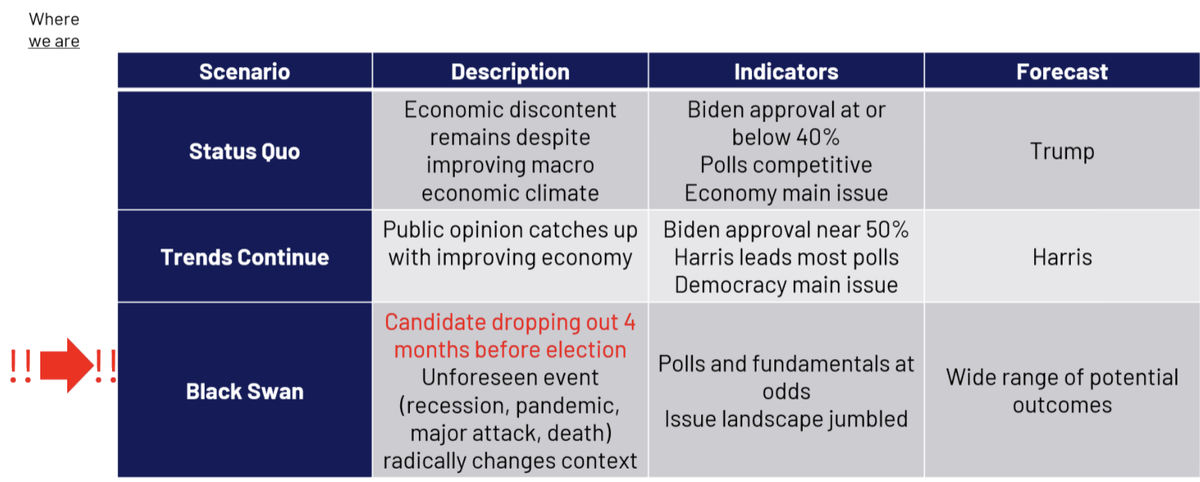
With a little more than two months to go before the election, I'm
not paying much mind to polls, prediction markets, or any of the most sophisticated forecasting models that come into my inbox about outcomes for the U.S. presidential election. As qualitatively good
as they may be, I just don't think they account for the most important independent variables that will determine who ends up in the White House.
As you may have already surmised, I'm talking
about the news cycle. And specifically, the kind of "black swan" events that shift voter sentiment in a way no data or predictive model could have foreseen.
That, plus the obvious trend toward
respondent/non-respondent bias associated with modern-day election polls, has led me to believe that we're much more in the zone of crystal balls than surveys and algorithms.
To be fair, I
think people are doing great work to at least try to divine what is influencing voters -- particularly the comprehensive tracking of the Ipsos elections tracking team, or the formidable analysis
MediaPost contributor Ed DeNicola has been doing utilizing prediction markets theory and data. In fact, Ed just published a remarkable post-analysis of the Democrats' ascent following the shift to a
Harris/Walz ticket and a strong Democratic National Convention.
advertisement
advertisement
It's heartening, but if you ask me, it's secondary to what happens with the news cycle. I mean, think about the disruptive news
events that led up to the 2016 and 2020 elections, and the ones we have already experienced to date in 2024's.
- Joe Biden's flameout in the first presidential debate.
- An attempted Donald Trump assassination.
- Increasingly weird exposes about J.D. Vance.
- The rapid-fire ascendency of the Harris/Walz ticket.
What's next? Your guess is as good as mine, but I'll guarantee you this -- there will be not just one, but multiple "nexts" in the news cycle.
If you look at Ipsos' most current model, the
elections team already has ticked off one black swan, and is speculating on more.
Based on their current assessment, if the news remains the same (ie., status quo) Trump/Vance is the likely
outcome. But if current news coverage trends persist, it will be Harris/Walz on the winning team.
With all due respect to the Allan Lichtmans of the world, I don't think the past is prologue
for the 2024 presidential election. There already are too many anomalies to rely on past predictive models.
And there will likely be many more.
That said, the Ipsos team has also doled
out some interesting data showing that it's not just the overall news cycle that matters, but what news segments of the voting population are primarily consuming.
If you're an average
American, or one who primarily sources mainstream news outlets, you likely consider inflation to currently be the No. 1 presidential campaign issue.
If you're someone who primarily gets their
news from conservative media outlets, you probably believe immigration is the most important issue.
If you're someone like me, who obsesses on what news everyone else is consuming, you
probably think media coverage is the top issue.
